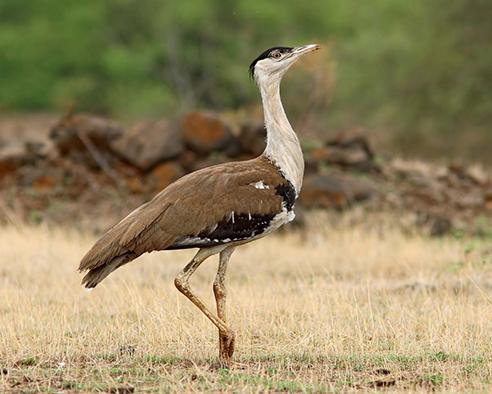Rajasthan
SC Considers Lifting the Ban on Transmission Lines through GIB Habitats
- 22 Mar 2024
- 2 min read
Why in News?
Recently, the Supreme Court agreed to release over 67,000 sq km area for setting up lines for transmission of solar power generated in Rajasthan and Gujarat but said 13,000 sq km area must remain undisturbed as it’s the core habitat of the endangered bird, Great Indian Bustard.
Key Points
- The Union government order banning overhead power cables for transmission of solar energy plants in 80,000 square km area is unimplementable.
- Further suggested a balance between encouraging solar energy generation to reduce emissions from coal-fired thermal power plants and all-out steps to do everything possible to save the GIB from getting extinct.
The Great Indian Bustard
- Great Indian Bustard (Ardeotis nigriceps) , the State bird of Rajasthan, is considered India’s most critically endangered bird.
- It is considered the flagship grassland species, representing the health of the grassland ecology.
- Its population is confined mostly to Rajasthan and Gujarat. Small populations occur in Maharashtra, Karnataka and Andhra Pradesh.
- Threat:
- The bird is under constant threats due to collision/electrocution with power transmission lines, hunting (still prevalent in Pakistan), habitat loss and alteration as a result of widespread agricultural expansion, etc.
- Protection Status:
- International Union for Conservation of Nature Red List (IUCN): Critically Endangered
- Convention on International Trade in Endangered Species of Wild Fauna and Flora (CITES): Appendix1
- Convention on Migratory Species (CMS): Appendix I
- Wildlife (Protection) Act, 1972: Schedule I





